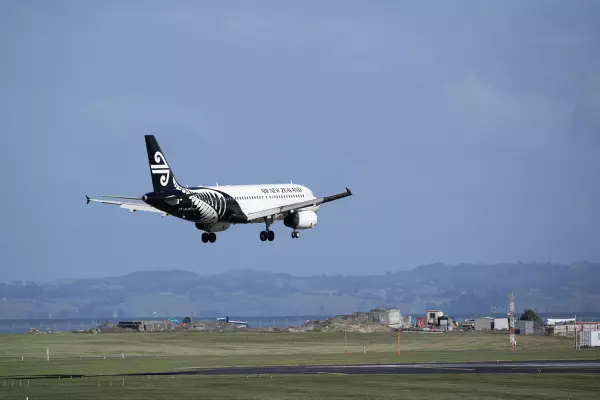New Zealand motorists will be feeling some relief at the petrol pump as global oil prices ease amid fears the coronavirus outbreak will slow the global economy.
The price of crude oil was recently at US$50 a barrel, down from US$61 at the start of the year. That has already started flowing through to retail petrol prices, with AA’s monthly petrol watch showing the national price of a litre of 91 octane was $2.299 on Jan. 30, down from $2.389 on Dec. 27.
Mark Stockdale, a principal adviser at AA, said there has been a series of falls in the global commodity price since the start of the year, some of which the coronavirus outbreak contributed to.
Oil prices have fallen by the equivalent of 12 cents a litre – once adjusted for the exchange rate – and the national price of petrol has dropped proportionally, according to the AA.
“The commodity price in US dollars has fallen by a little bit more, but the exchange rate also fallen a bit so that has offset some of that,” Stockdale said.
Jet fuel
Air New Zealand had already noted the decline in oil prices when it signalled annual profit would be weaker due to travel restrictions cutting passenger numbers.
And yesterday, Caltex Australia said the outbreak was a significant disturbance to its operations.
The Australian fuel company said it expected the crude oil market to weaken, with jet fuel particularly disrupted due to travel restrictions inside China and a raft of cancelled international flights.
Australian jet fuel demand is expected to be down 5 to 10 percent due to cancelled flights, with potential for indirect impacts on other related sectors, Caltex said
Both Qantas Airways and Air New Zealand have shrunk their capacity in response to the dwindling passenger numbers.
Global demand
AA’s Stockdale said global demand for fuel and oil prices would remain under pressure for as long as the coronavirus outbreak disrupted flights and sea cruises.
“That’s exactly what has been occurring and that is likely to continue for as long as coronavirus remains an issue,” he said.
The International Energy Agency this month said global oil demand would drop this quarter for the first time in over a decade due to widespread shutdown of China’s economy to contain the coronavirus,
Over that period, the IER predicted world fuel consumption would contract by 435,000 barrels a day, instead of grow by 800,000 barrels.
That prompted some members of the Organisation of Petroleum Exporting Countries to push for further production cuts in order to support the price of crude oil.
However, Stuart Ive, treasury manager at OMF Financial Markets, said not only was Russia resistant to the idea, but additional cuts were unlikely to have much effect.
“There is going to be little that OPEC can do about the price of oil. It is only going in one direction and that is lower,” Ive said.
OPEC production
While OPEC members produce approximately 40 percent of the world’s oil, other oil-producing nations can fill whatever space comes into the market.
Ive said lower oil prices should translate to a cheaper price at the pump, provided New Zealand’s currency held its ground against the greenback.
“Oil prices are priced in US dollars. So, to expect the oil price to drop you’ve really got to weigh up what is going on with the currency,” he said.
The kiwi dollar traded at 63 US cents, and has dropped from 67 cents at the start of the year.
Ive said the kiwi has been moving lower and if covid-19 led to a global slowdown, central banks would probably respond by cutting interest rates, pushing the currency even lower.
“We’ve come a long way on the downside – can we go further down? Yes, we can. Especially against the US dollar, which at the moment has been resistant,” he said.
Domestic competition
Against that backdrop, the domestic petrol market has already seen heightened competition as retailers reacted to the expansion by discount retailers such as Gull, Waitomo and Allied.
In December, New Zealand’s largest fuel retailer Z Energy cut its annual earnings guidance because of that competition.
Gull’s parent is Caltex Australia. The New Zealand discount retailer accounted for just 2.7 percent of Caltex Australia’s A$22.3 billion of annual revenue in calendar 2019.
Gull reported revenue of A$623.2 million in 2019 across its 95 New Zealand retail sites, an 11 percent increase on the prior year. That outpaced the 8 percent increase in the volume of fuel sold, which it said was more than 400 million litres, without being more specific.





